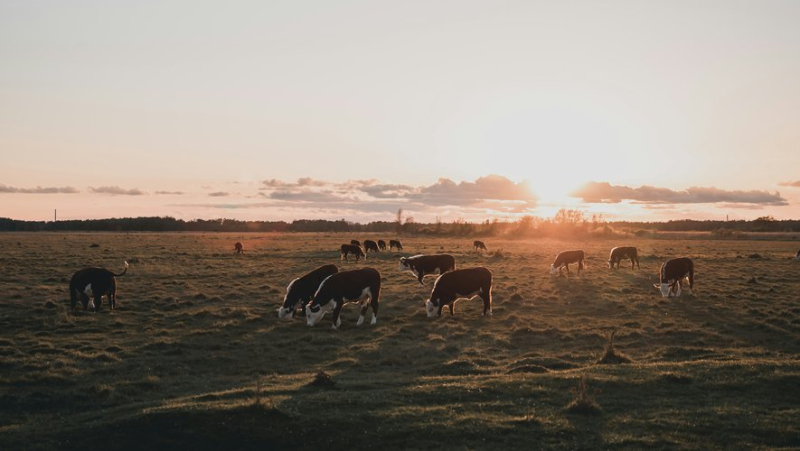In a world first: Denmark will tax farts and burps of cows, sheep and pigs

L’objectif est de réduire les émissions de gaz à effet de serre du Danemark de 70 % par rapport aux niveaux de 1990 d’ici 2030. Unsplash – Febiyan
Ce lundi 24 juin 2024, le Danemark a officialisé son projet de taxe sur "gaz à effet de serre émis par les vaches, les moutons et les porcs".
From 2030, Denmark will tax breeders for the greenhouse gases emitted by their cows, sheep and pigs, reports this Wednesday, June 26, the agency < strong>AP. It is the first country to do so as it targets a major source of methane emissions, one of the most potent gases contributing to global warming.
Aim to reduce Denmark's greenhouse gas emissions by 70% compared to 1990 levels by 2030, tax minister says , Jeppe Bruus.
Concretely, from 2030, Danish breeders will be taxed at 300 crowns (40.23 euros) per tonne of carbon dioxide equivalent. The tax will increase to 750 crowns (100.58 euros) by 2035. But with the deduction of income tax at 60% the real cost per tonne will begin to 120 crowns (16.09 euros) and will increase to 300 crowns by 2035.
Produced by belching
According to AP, livestock represents approximately 32% of human-caused methane emissions, according to the United Nations Environment Program. Almost all of the methane produced by livestock farming, 90%, comes from digestion, through fermentation, and is released in the form of burps through the mouth. Most of this methane emitted by cows is produced by belching. Most of the remaining 10% comes from manure ponds on pig and cattle farms.
"We will take a big step towards climate neutrality in 2045", Bruus said, adding that the Denmark "will be the first country in the world to introduce a real CO2 tax on agriculture" and hopes that other countries will follow this example.
The tax must be approved by the 179-seat Folketing, or parliament, but the bill is expected to pass after broad consensus.




